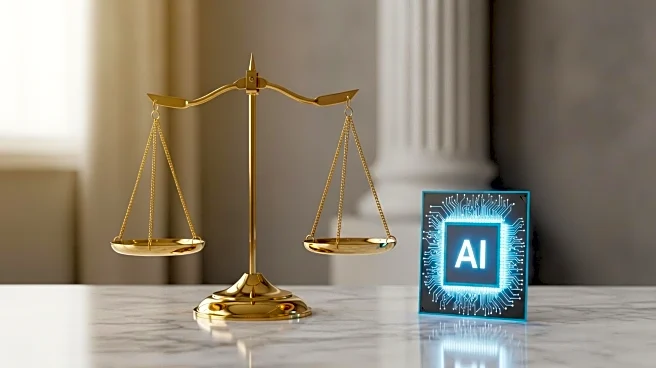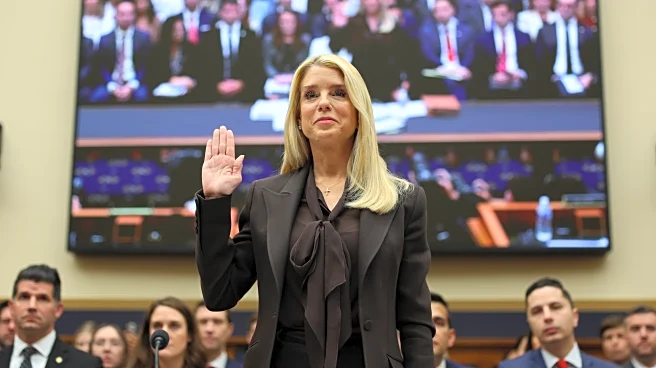What's Happening?
Justice Amy Coney Barrett revealed that lawyers have used AI to predict questions from Supreme Court justices, with some queries being accurately anticipated. Speaking at the Ronald Reagan Presidential Library, Barrett shared insights from her new book, 'Listening to the Law: Reflections on the Court and Constitution'. She expressed skepticism about the court adopting AI due to confidentiality concerns but acknowledged its potential future use. Barrett emphasized the importance of civility and compromise in democracy, warning against a winner-takes-all mentality.
Why It's Important?
Barrett's comments highlight the growing intersection of technology and law, particularly AI's role in legal preparations. This development could transform how lawyers approach Supreme Court cases, potentially increasing efficiency and accuracy in anticipating judicial inquiries. However, the ethical and confidentiality concerns raised by Barrett underscore the need for careful consideration of AI's integration into legal processes. The broader implications for the legal industry include shifts in how cases are prepared and argued, impacting both legal education and practice.
Beyond the Headlines
The use of AI in legal settings raises questions about the balance between technological advancement and traditional legal practices. Ethical considerations, such as data privacy and the potential for AI bias, must be addressed to ensure fair and just legal proceedings. The dialogue initiated by Barrett may prompt further exploration of AI's role in the judiciary, influencing future policy and regulatory frameworks.










